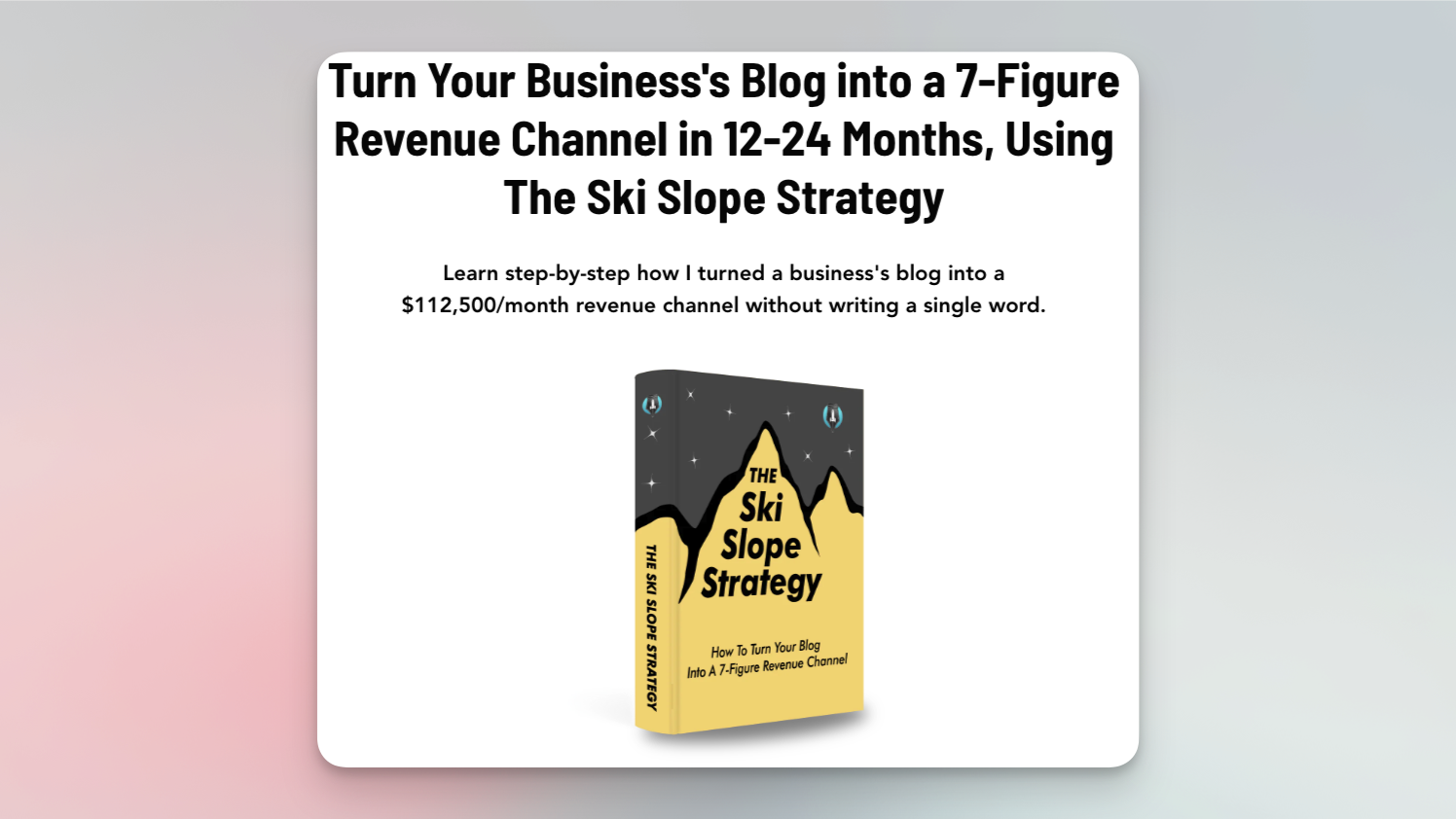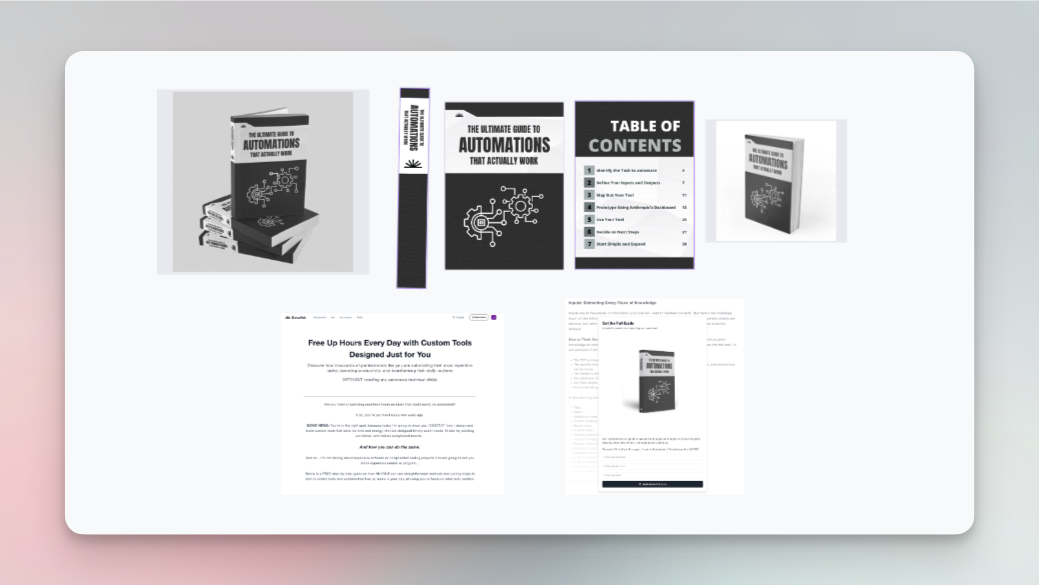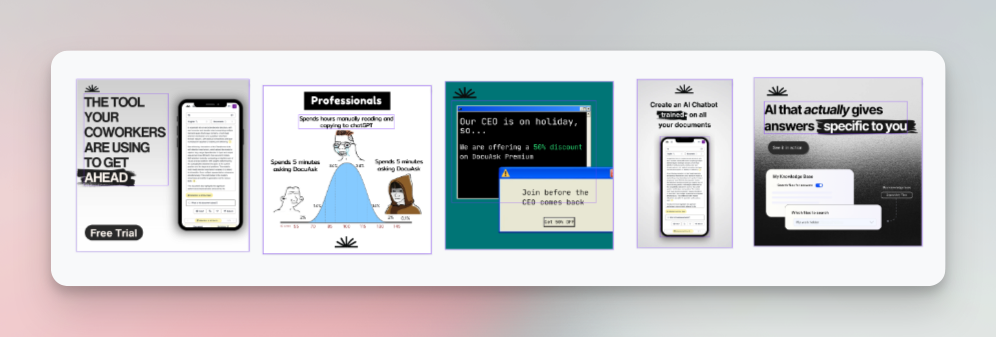Coding to Canva: Stepping Out of My Comfort Zone
2024-09-03 - by Joseph Chin
I've always considered myself a back-end engineer, more comfortable with system design than anything visual. But this past week, I found myself diving headfirst into a world I never thought I'd explore: marketing and design.
The Spark of Curiosity

It all started when I stumbled upon an intriguing Instagram ad. The "Ski Slope Strategy" from Content Mavericks caught my eye, not because of its content, but because of its approach. Here was a marketing funnel that didn't look like a typical conversion-oriented landing page. Curiosity piqued, I clicked.
What I found was an interesting take on marketing. Social proof, compelling language, objection handling - it was all there, packaged neatly in a book offer. But what really struck me was the strategy behind it. This wasn't just about selling a book; it was about building a relationship with potential customers through value-first content.
Applying the Strategy
As I dug deeper, I realized this approach could be perfect for my own SaaS product, DocuAsk. We've been working on a custom automation tool, but explaining its value to potential customers has been challenging. What if we could use a similar strategy to educate and engage our audience?
With a mix of excitement and trepidation, I decided to give it a shot. I set aside a modest budget of $300 a month and got to work. But here's where things got interesting - and uncomfortable.
Facing the Design Challenge
To replicate this strategy, I needed to create ads, landing pages, and a valuable piece of content to offer. Suddenly, I found myself face-to-face with Canva, a tool I'd always admired from afar but never dared to use. As someone who once believed "design" was a foreign language, the prospect was daunting.
But necessity, as they say, is the mother of invention. Or in this case, the mother of "fake it till you make it."
I dove into Canva, fumbling through templates and color schemes. I created ad creatives, designed a mock-up book cover, and even put together a PDF guide titled "The Ultimate Guide to Automations That Actually Work." To my surprise, it wasn't a disaster. In fact, dare I say, some of it looked... good?

The Rewards of Stepping Out
The process was challenging, yes, but also unexpectedly rewarding. Each small victory - a well-designed ad, a compelling landing page - felt like a personal triumph.
As I write this, the campaign is still in its early days. But already, we've seen hundreds of sign-ups to our mailing list. It's too soon to call it a success, but the initial results are promising.
More than the potential marketing success, though, this experience has taught me a valuable lesson. It's easy to pigeonhole ourselves, to say "I'm not a creative person" or "I can't do design." But often, these limitations exist only in our minds.
New Possibilities
By stepping out of my comfort zone, I've not only potentially found a new marketing strategy for DocuAsk but also discovered capabilities I didn't know I had. It's opened up new possibilities - I'm already planning to create one or two new ad creatives each week, constantly iterating and improving.

Of course, I'm not claiming to be a design expert now. Far from it. But I've learned that growth often happens when we're willing to be uncomfortable, to try things we're not sure we can do.
Measuring Success
As I continue this journey, I'm keeping a close eye on our key performance indicators:
- Mailing list growth
- Consultation bookings
- New Subscriptions (particularly Annual Subscriptions)
These metrics will tell us if this new approach is working. But regardless of the outcome, I already consider this experiment a personal success (to someone design-challenged like me).
A Call to Action
So, to anyone reading this who's hesitating to try something new because it's out of their wheelhouse - take the leap. You might surprise yourself. And even if you don't become an expert overnight, the process of learning and growing is invaluable.
After all, in the world of entrepreneurship and innovation, the ability to adapt and learn might just be the most valuable skill of all.